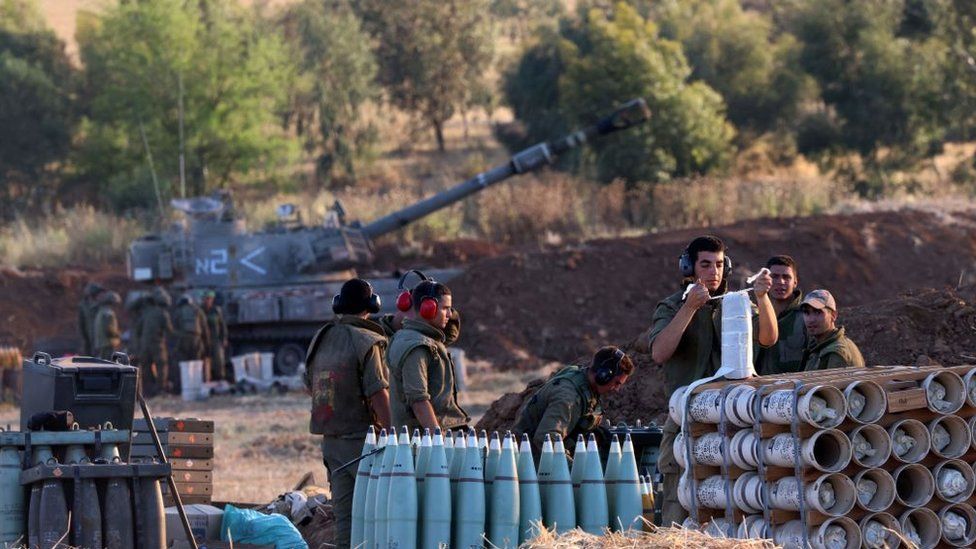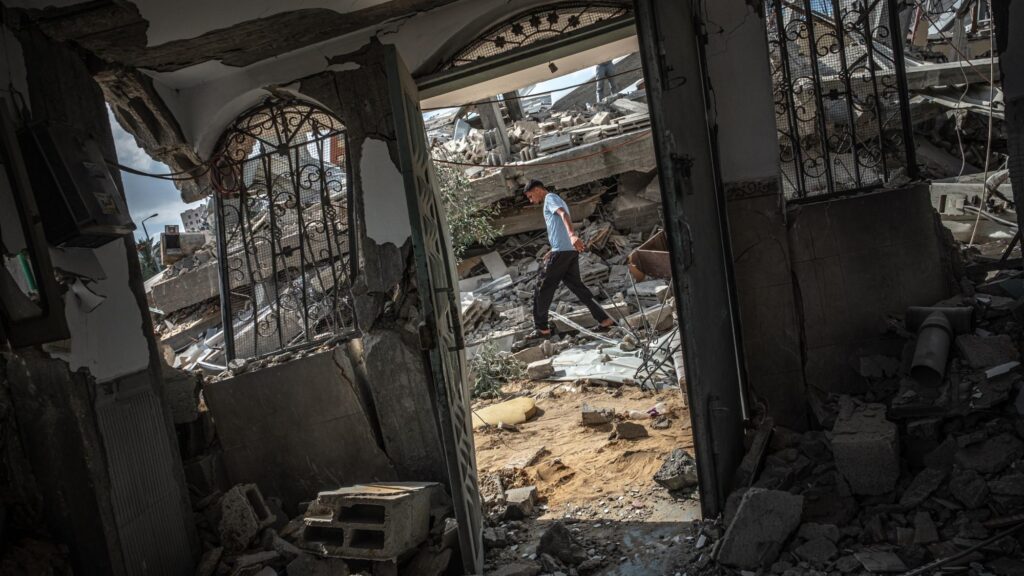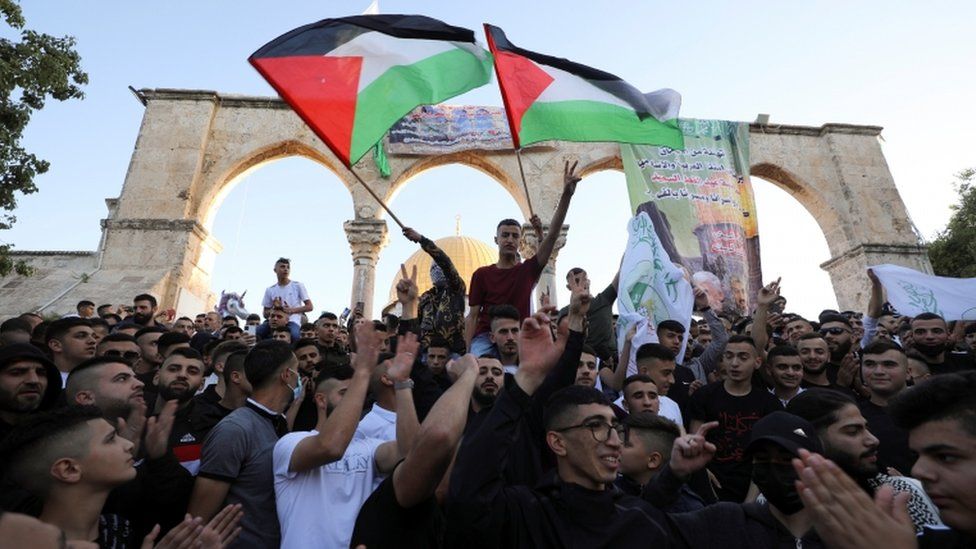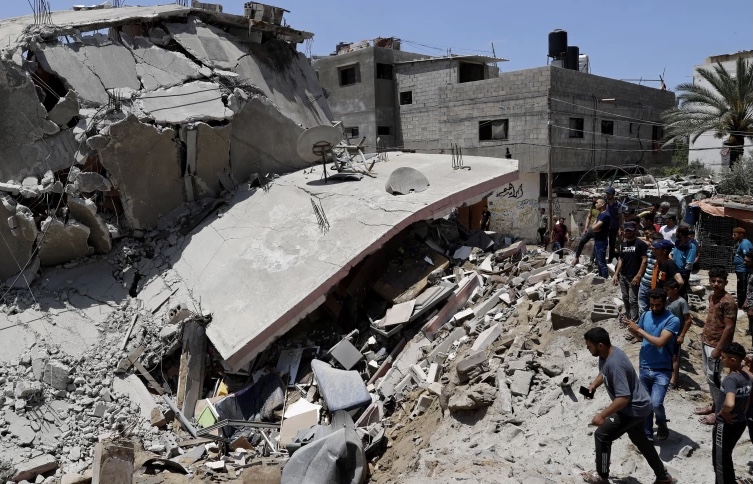Military says no troops currently operating inside territory as number of casualties continues to grow.

Curled from The Guardian
Israeli ground and air forces have attacked targets in Gaza, forcing residents to flee their homes, in a significant escalation in the worst bout of fighting for seven years.
Heavy artillery fire was aimed at what the Israeli military said was a large network of militant tunnels. The intense overnight bombardment came amid speculation that Israeli troops were preparing to enter Gaza on the ground.
Red flames illuminated the skies above Gaza in the early hours of Friday as the deafening blasts from the outskirts of Gaza City, which lies about a mile from the frontier, jolted people awake as their apartment blocks shook.
Palestinians living in areas close to the Gaza-Israel border fled their homes in pickup trucks, on donkeys and by foot. Some went to UN-run schools in Gaza City, carrying small children, household essentials and food.
Hedaia Maarouf, who left her home with her extended family of 19 people, including 13 children, said: “We were terrified for our children, who were screaming and shaking.”
In northern Gaza, Rafat Tanani, his pregnant wife and four children were killed after an Israeli warplane reduced a building to rubble, residents said.
The number of injured rose to 830 overnight, an increase of 200 in 10 hours, according to the Gaza health ministry. The death toll stood at 119, including 27 children, it said.
The UN said that more than 200 homes and 24 schools had been destroyed or severely damaged in the Gaza Strip in Israeli air raids in the past five days. It also warned that residents’ access to fresh water could be limited because of power cuts and damage to pipe networks.
Power supplies may also be cut further as a result of the military action. At the moment, most families have power for four or five hours a day, with hospitals and businesses relying on generators. But as fuel supplies run low, more blackouts are expected.

Hamas and other militant groups continued to fire rockets into Israel, with warning sirens sounding in towns and communities. The Israeli military said it had intercepted at least five drones carrying explosives launched from Gaza since Thursday.
Nine people have been killed in Israel, including a child and a soldier.
Shortly after midnight, the Israeli military issued a statement saying: “[Israel Defence Forces] air and ground troops are currently attacking in the Gaza Strip.”
It later clarified that there were no troops inside Gaza, suggesting it was not a ground invasion but artillery and tank fire from the border. “Clarification: there are currently no IDF ground troops inside the Gaza Strip. IDF air and ground forces are carrying out strikes on targets in the Gaza Strip,” the statement said.
It added that fresh airstrikes had been carried out against what it called a “number of Hamas launch sites and observation posts in Gaza”.

Shortly after the initial military announcement, in an apparent reference to the operation, Benjamin Netanyahu, Israel’s prime minister, tweeted: “The last word was not said and this operation will continue as long as necessary.”
Later on Friday morning, the IDF released a statement saying that an operation of 160 aircraft had “struck over 150 underground targets in the northern Gaza Strip” over the course of the night. The statement claimed that the purpose of the operation was to damage underground tunnels built by Hamas. Israel’s forces destroyed “many kilometres” of the tunnels during the attack, it claimed.
The Israeli military has drawn up plans for a possible ground operation in Gaza, telling its forces to “prepare for battle”. Thousands of reservists have been called up and leave for all combat units has been cancelled.
Israel was also hit by further communal violence for a fourth night with Jews and Arabs clashing in the town of Lod. A synagogue was torched overnight and 43 people were arrested, according to police.
The Shin Bet security service said it was involved in tackling the violence in Jewish-Arab cities, which it described as “terror for all intents and purposes”.
It was using its “intelligence collecting capabilities” to learn about any plans to carry out attacks or engage in violent clashes and “to locate, arrest, investigate and put the perpetrators on trial”, it said in a statement.
“We won’t allow violent rioters to impose terror on the streets of Israel, either by Arabs or Jews,” said Shin Bet’s chief, Nadav Argaman.
Political leaders have said that violent street clashes between Jews and Arabs inside the country pose a bigger threat than the escalating military conflict with Gaza.
We have no bigger threat now than these pogroms, and we have no choice but to restore law and order via determined use of force,” said Netanyahu on a visit to the town on Thursday.
Israel’s president, Reuven Rivlin, said a “civil war [would] be a danger to our existence, more than all the dangers we have from the outside”.
Intercommunal violence, including beatings, stabbings, shooting and arson, has this week been reported across the country, from Beersheba in the southern Negev to Tiberias and Haifa in the north.
Hundreds of people have been arrested, and border police have been redeployed from the occupied West Bank to towns inside Israel. “We’re in an emergency, the defence minister, Benny Gantz, said in a statement.

“We have a small favour to ask. Millions are turning to the Guardian for open, independent, quality news every day, and readers in 180 countries around the world now support us financially.
We believe everyone deserves access to information that’s grounded in science and truth, and analysis rooted in authority and integrity. That’s why we made a different choice: to keep our reporting open for all readers, regardless of where they live or what they can afford to pay. This means more people can be better informed, united, and inspired to take meaningful action.
In these perilous times, a truth-seeking global news organisation like the Guardian is essential. We have no shareholders or billionaire owner, meaning our journalism is free from commercial and political influence – this makes us different. When it’s never been more important, our independence allows us to fearlessly investigate, challenge and expose those in power.
